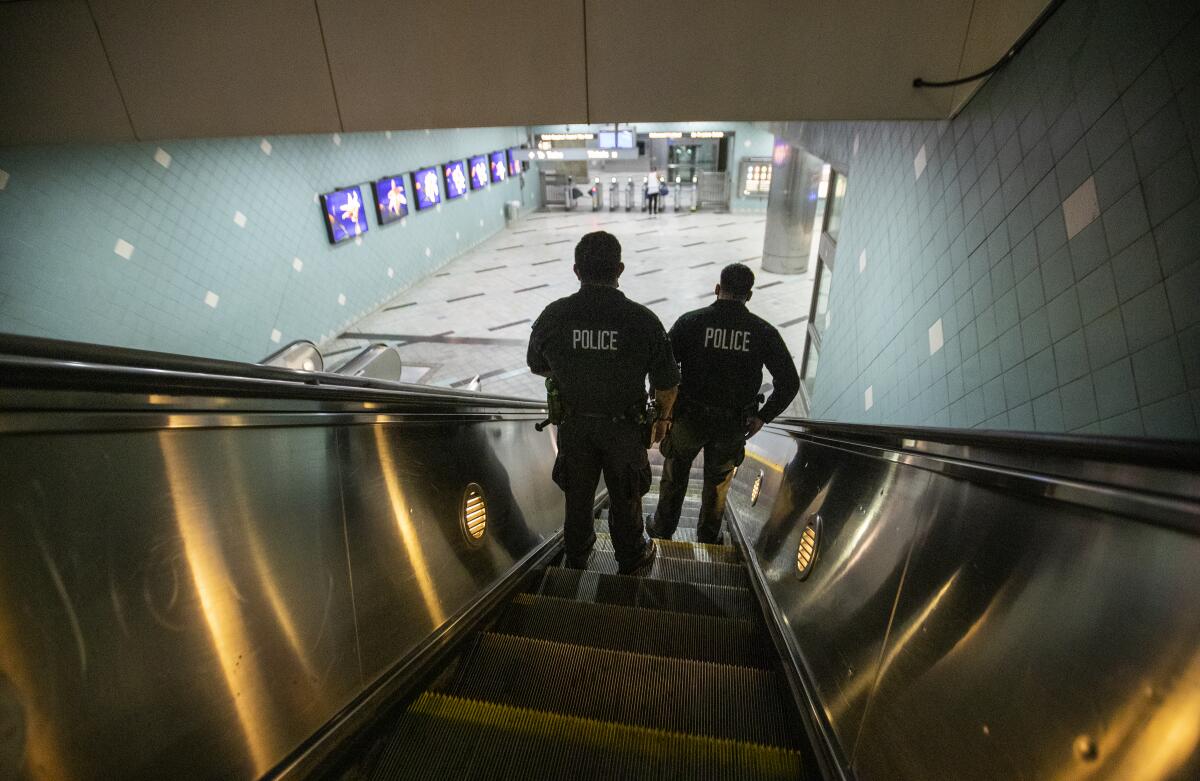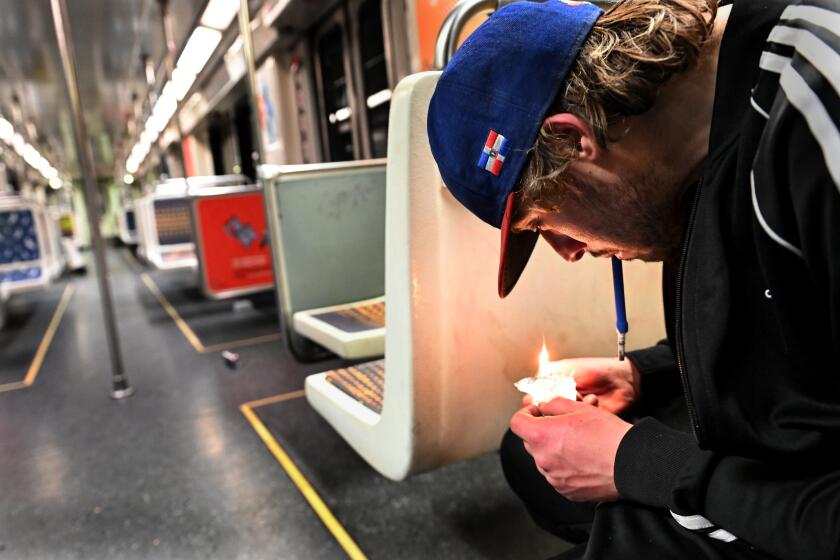L.A. Metro looks at creating own transit police force

- Share via
Frustrated with local law enforcement agencies, Los Angeles County transit officials on Thursday rejected their proposals of a new contract to patrol buses and trains and signed off on a plan to explore creating their own police force.
The move was a rebuke of local law enforcement that has been the backbone of security for Metro, costing the agency $912 million over the last six years. An Office of Inspector General audit last year found the police agencies had poor visibility on the system and didn’t have adequate means of monitoring the deployment of officers, and that their process of dealing with citizen complaints lacked transparency.
Still, the board overseeing Los Angeles County Metropolitan Transportation Authority approved extending the current policing contract with the Los Angeles Police Department, the Los Angeles County Sheriff ‘s Department and the Long Beach Police Department for another year, with a clause allowing to renew it annually until 2026.
The board voted 11 to 1 in favor of the contract, with board member and Supervisor Holly Mitchell abstaining. Supervisor Lindsey Horvath cast the lone dissent.
The contract had been set to expire June 30.
“We are paying a lot of money for these contracts and it’s clear crime is a problem. Perception of crime is a problem,” said Metro board member and county Supervisor Janice Hahn. “It almost feels like we’re giving these three agencies another chance.”
Commuters have abandoned large swaths of a Los Angeles Metro train system plagued by crime and the scourge of drugs.
The audit found sheriff’s deputies were working largely from patrol cars outside stations and buses, riding the trains just 12 out of 178 weekly shifts. LAPD officers patrolled more in the stations, but a little over half of emergency calls were answered by neighborhood patrol officers not assigned to Metro.
Last year, violent crime on the system was 40% above pre-pandemic levels, when ridership was much higher.
Metro originally sought proposals for a new security contract but scrapped the effort after the LAPD and the Beverly Hills Police Department refused to fully incorporate the agency’s deployment strategies and oversight.
“Accepting those proposals would have resulted in inconsistent policing across our transit system, which would be detrimental to Metro, our employees and our customers,” said Metro spokesperson Dave Sotero “If we’d accepted the contracts with the exceptions, we’d basically be accepting that the status quo — which is clearly not working.”
Social justice groups have called for the agency to sever its ties with the departments, arguing that the money could be better used on social services such as homeless outreach and improvements at the stations, including bathrooms.
It comes as Metro is attempting to take a more holistic approach to policing. On Thursday it adopted a bias-free police policy intended to prevent racial profiling and recently added ambassadors who help riders find their way or accompany them when they feel unsafe. It’s also subsidizing a shelter program.
Both the LAPD and the Sheriff’s Department said they work closely with Metro and are willing to address its complaints, although they disagreed with some of the audit’s findings.
Under the contract process, the board approval pre-authorizes Metro to negotiate a renewal.
Horvath attempted to overturn that with an alternative proposal that would give the board a final say on the contract. It ultimately failed.
“We cannot blindly hand out taxpayer dollars for contracted services without knowing what we are getting in return,” she said. “We have no specific details regarding the deployment and accountability of those agencies.”
More to Read
Sign up for Essential California
The most important California stories and recommendations in your inbox every morning.
You may occasionally receive promotional content from the Los Angeles Times.












